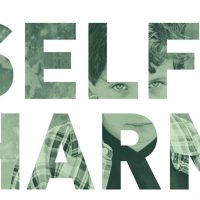self-harm
-

Most Cited JCPP Articles #49 of 60
Most cited JCPP papers #49 of 60: Deliberate self‐harm within an international community sample of young people: comparative findings from the Child & Adolescent Self‐harm in Europe (CASE) Study
Read more -

Welcome to Dr Dennis Ougrin
Our new Editor in Chief of the Child and Adolescent Mental Health journal.
Read more -

Violent self-harm may predict subsequent suicide
Researchers in Sweden have found that violent methods of self-harm requiring hospitalization may indicate high risk of future suicide in adolescents and young women.
Read more -

Navigating an unfamiliar world: how parents of young people that self-harm experience support and treatment
Participants described a range of reactions to treatment and support for themselves and the young person. We identified three main themes: attitudes towards the young person, practical aspects of help and the need for parents to be involved.
Read more -

The family environment mediates risk of self-harming
Non-suicidal self-injury (NSSI) constitutes any deliberate physical injury to oneself that is not life-threatening. It is a behaviour that commonly starts during adolescence. Childhood family adversity (CFA) is associated with NSSI, but the risk pathways between CFA and NSSI are unclear.
Read more -

Clinical characteristics of adolescents referred for treatment of depressive disorders
Low mood and depression often emerge during adolescence and are associated with long-term difficulties including increased risk of developing other mental health disorders, educational underachievement, low income/unemployment, and risk of suicidal behaviour.
Read more -

Self-Harm & Suicide Issue – Foreword from the Editor
As a clinician, it certainly does feel that more and more young people are being referred, following self harm or with suicidal ideas, to the CAMHS service I work in. This nationwide increase in numbers is acknowledged in recent government reports, which are summarised in this edition.
Read more -

Self-Harm: The Parent’s View
Though it is not always openly discussed, the impact self-harm has on the individual and their family, can be very distressing. For someone to recover from ‘rock-bottom’ requires support, with family being an obvious source. It makes sense that the pillars of this support system, parents in most cases, feel equipped to support their child in recovering from such an experience. Saying this, there is little research on parents’ perspective of care following self-harm.
Read more
